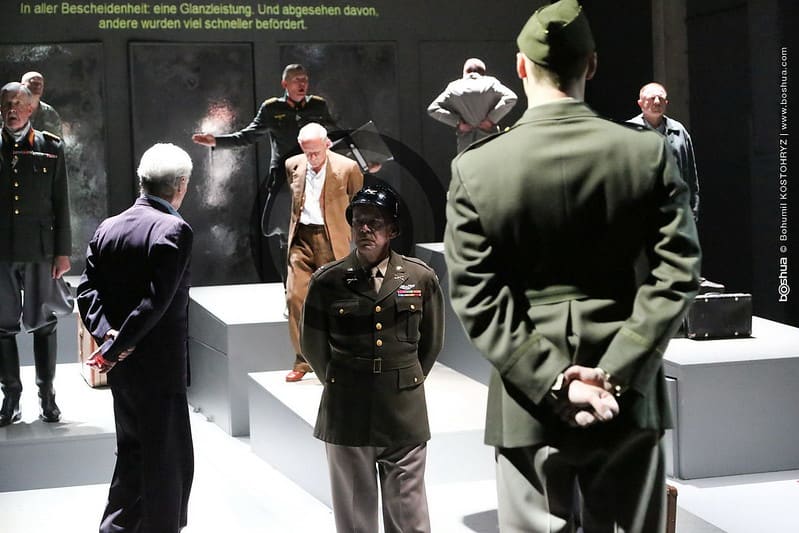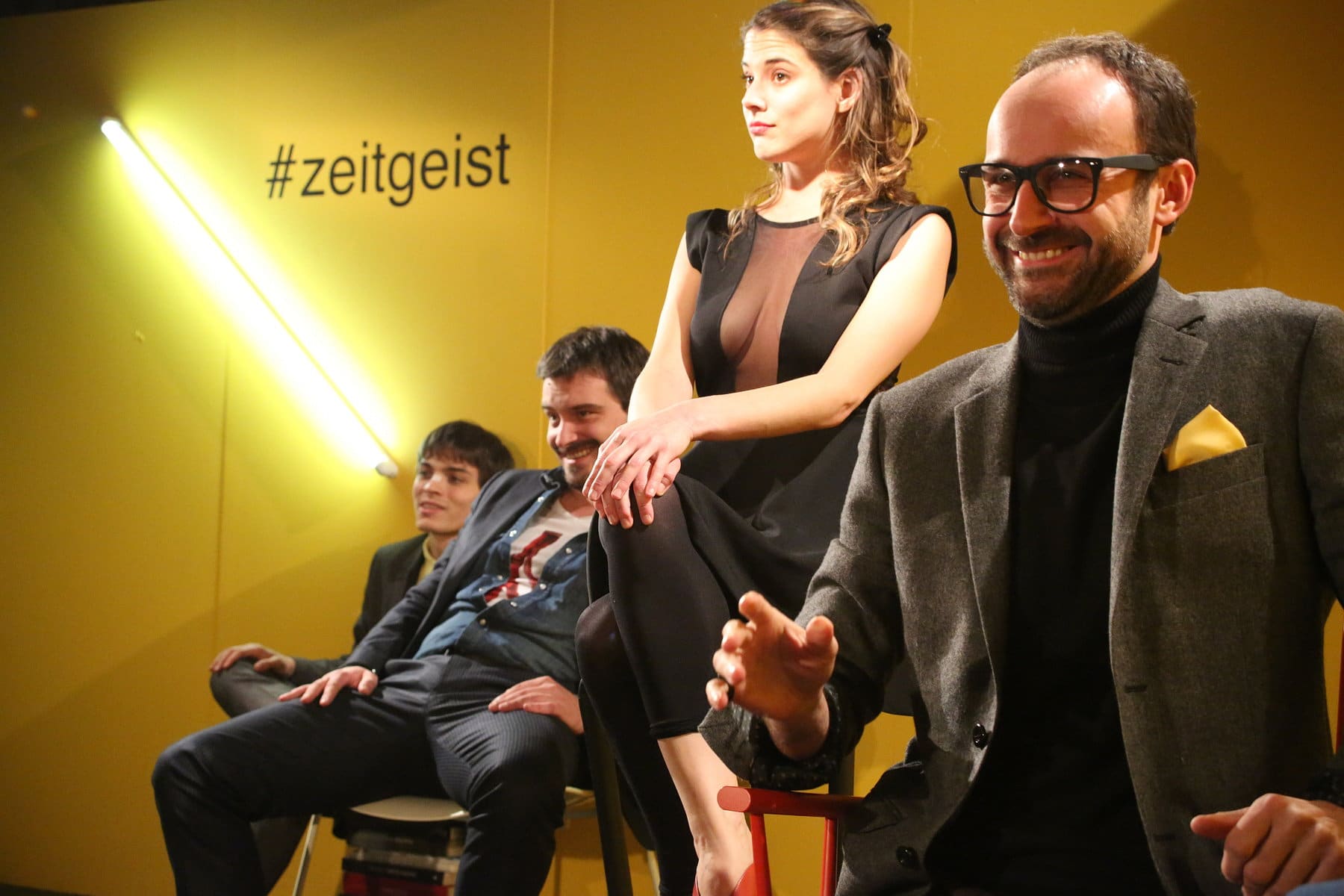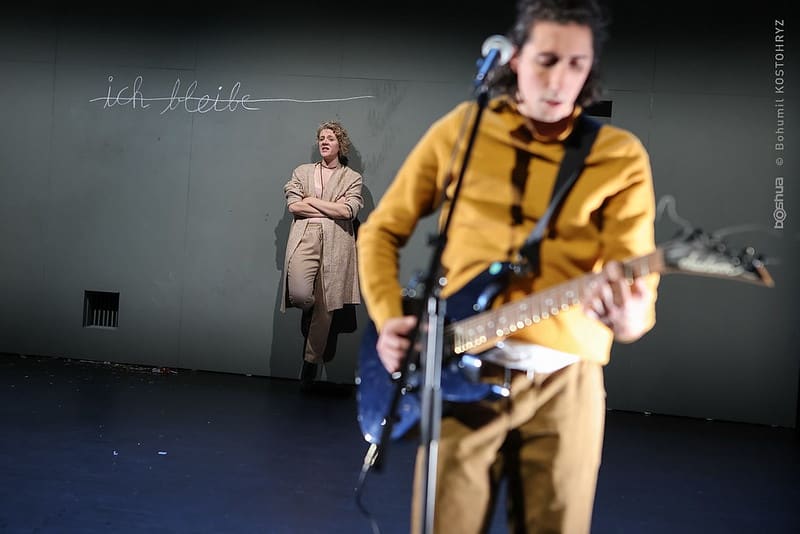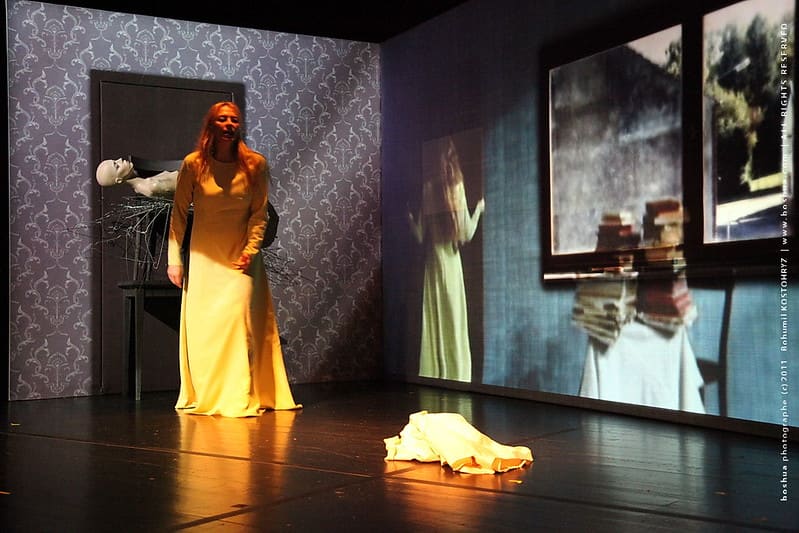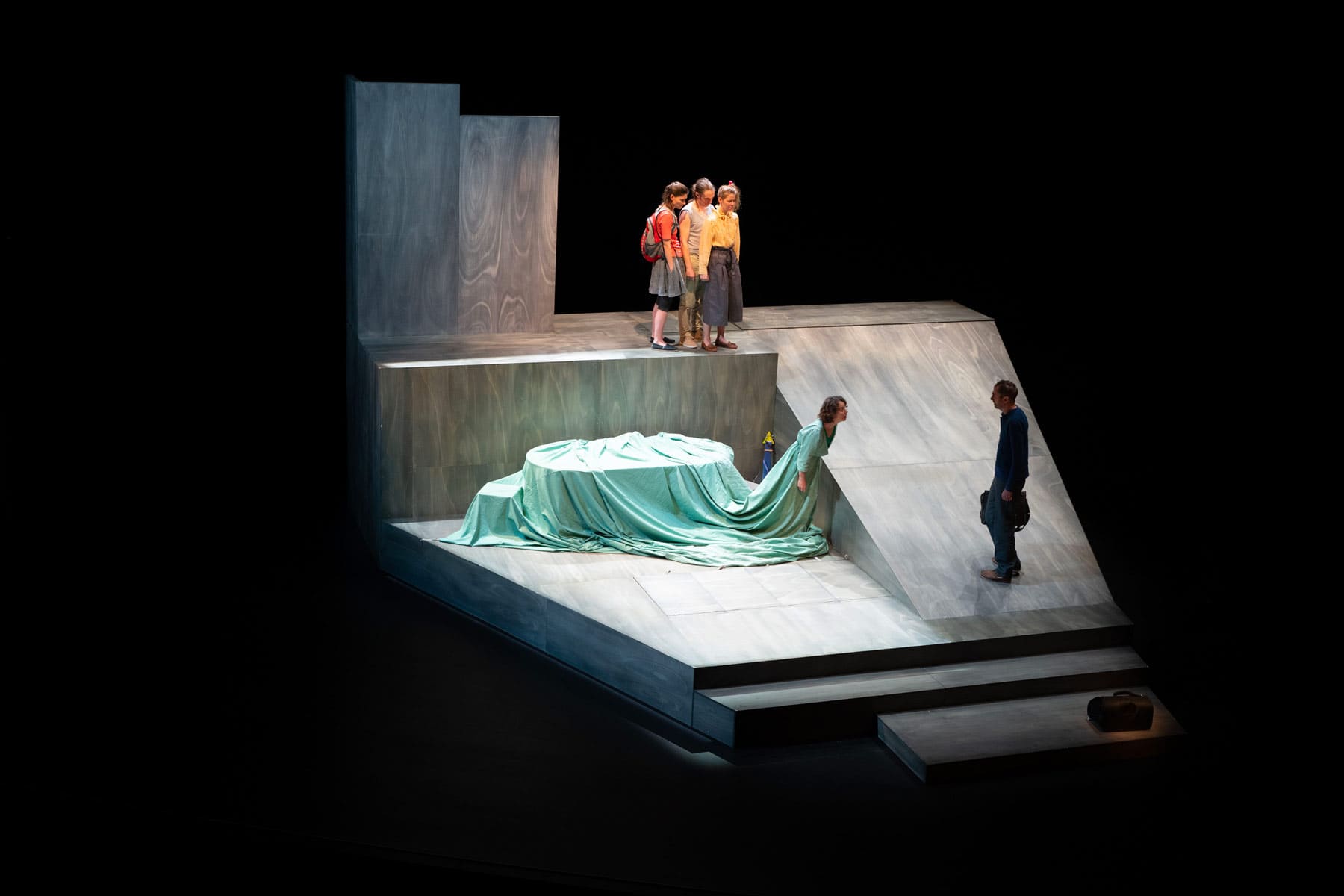
Theatre
The written and performed theatre in Luxembourg forms part of a tradition dating back to the mystery plays put on in churches, the commedia erudita, and the theatre staged at the Jesuit colleges in the 16th and 17th centuries. Yet it was not until the mid- to late-19th century that a genuine performing arts sector developed in Luxembourg, starting with the emergence of a handful of playwrights – such as Edmond de la Fontaine, known as “Dicks”, Batty Weber and Max Goergen – writing in Luxembourgish; their shows were often vaudeville and operettas, similar to those found in the boulevard theatre of Luxembourg’s larger neighbours. The second crucial development was the professionalisation of the sector in the second half of the 20th century.
Venues and institutions
These days, there are six theatres in Luxembourg.
There are two municipal theatres (similar to what are known as Stadttheater in Germany):
• First, there are the Luxembourg City Theatres (which bring together, into a single institution, the Grand Théâtre, on Rond-point Robert Schuman, and the Théâtre des Capucins, on Rue des Capucins, in the pedestrianised zone in central Luxembourg City). Tom Leick-Burns runs the Luxembourg City Theatres, working alongside his Deputy Director, Anne Legill.
• There is also Municipal Theatre of Esch-sur-Alzette, located on Rue de l’Alzette, in Esch. Carole Lorang is the Director of Esch Theatre.
The municipal theatres are publicly owned, with the bulk of their funding coming from the government of the municipality where they are located. Like all Luxembourg theatres, but unlike the Stadttheater in Germany (or in other German-speaking countries, where theatres operate a repertory system, featuring a resident company), municipal theatres are run under what is known as the “line-production” model, which means that the artists working there are all freelancers/casual workers, who are hired on a temporary basis, for the duration of a given project. For each production, the theatre therefore puts together a team around a director, who is often also the project sponsor; after the final performance, the team members go their separate ways to pursue other projects.
In a line-production system, like that used in Luxembourg, the shows on a programme are often only staged for a single season, even if they have been a big hit. In this system, it is difficult to extend a hit show because the artists who make up the team often have other commitments after the run has finished.
It is often suggested, in Luxembourg, that the country needs a repertory system with fixed resident companies, since people are frequently frustrated by how few performances there are of shows written in the Grand Duchy. In a country where the number of actresses and actors remains small, however, there are quite a few obvious problems with idea of putting together a resident company.
The Luxembourg City Theatres and Esch Theatre are what are known in German as Mehrspartenhaus, meaning theatres with several departments. The productions they stage are not only theatre, but also dance (various forms of contemporary ballet), opera, operettas and musical theatre, as well as theatre for children and younger audiences.
The Luxembourg City Theatres and Esch Theatre both have a dual purpose. First, they are what are known as “presenting theatres”, meaning that they host touring theatre productions. Second, however, they are also “producing theatres”, meaning that they put on their own productions too. The two institutions play an important role in putting on joint productions with theatres in other European countries, both in- and outside Luxembourg.
In addition to the two municipal theatres, there are four privately run theatres:
• The Théâtre National de Luxembourg (TNL), run by Frank Hoffmann
• The Kasemattentheater, run by a team led by Marc Limpach and Lex Weyer
• The Théâtre du Centaure, run by Myriam Muller and Jules Werner
• The Théâtre Ouvert Luxembourg (TOL), run by Véronique Fauconnet
These four theatres are said to be run privately because they were founded on private initiative and belong, on paper, to non-profit legal entities. However, the term “privately run theatre” should not be understood as it is in other countries, such as France, where the shows put on in publicly run theatres differ greatly from those staged in privately run ones. In Luxembourg, the privately run theatres simply have a different funding model to the municipal ones; they actually receive their funding from the Luxembourg Ministry of Culture They are also known as “agreement theatres” because each has an agreement with the Ministry of Culture, which allocates them a certain sum every year for putting on shows.
The four agreement theatres also employ the line-production model, although it is noticeable that these venues often work with the same artists and that, every year, they stage one or two productions by the theatre’s own director. The privately run venues operate, with a few exceptions, more as producing theatres than as presenting theatres.
One notable difference between these theatres is the productions they stage. Like most European theatres, the Luxembourg City Theatres and Esch Theatre, along with the National Theatre, cast their net wide, putting on a mixture of classics and contemporary pieces in four languages: French, German, Luxembourgish and English. The Théâtre du Centaure and the TOL, meanwhile, focus on plays written by living, French-speaking playwrights (although the Centaure does give classic or another star billing in its line-up every season), with a sprinkling of ones written by Luxembourgers. For its part, the Kasemattentheater focuses on plays by living, German-speaking playwrights (or ones translated into German).
In Luxembourg, there are other venues and institutions that stage theatrical productions, in particular the regional cultural centres, mainly funded by the municipalities in which they are located:
• The Multi-Disciplinary Cultural Centre (CAPE), Ettelbrück
• The Mierscher Kulturhaus
• The Kinneksbond, Mamer
• The Kulturhaus Nideranven
• The Neumünster Abbey Cultural Centre and Meeting Place
• The Opderschmelz Regional Cultural Centre (CCRD)
• Cube 521, Marnach
• Kulturfabrik, Esch-sur-Alzette
• Rotondes, Luxembourg City (theatre for a younger audience)
However, these venues are multipurpose cultural centres and multidisciplinary institutions, putting on concerts, exhibitions, readings and workshops, in addition to theatrical productions. With a few exceptions, such as the occasional new shows put on by Mierscher Kulturhaus and the Kinneksbond, they do not create their own new theatrical productions.
Shows, aesthetics and themes
When all these venues and institutions are taken into account, there can be said to be, on average, 80-100 theatrical shows – a mixture of existing and new productions – staged in Luxembourg every season.
Some 40-50 of these shows are written (and produced) in Luxembourg, which does not necessarily mean that the whole team will be made up of Luxembourg artists. The intercultural nature of the Luxembourg theatrical (and literary) scene means that the teams brought together for new productions almost always include people of multiple nationalities.
On average, some 30-40 new productions are put on by Luxembourger directors (including Fabio Godinho, Frank Hoffmann, Marja-Leena Junker, Daliah Kentges, Rafael David Kohn, Sophie Langevin, Carole Lorang, Claude Mangen, Myriam Muller, Renelde Pierlot, Anne Simon, Jacques Schiltz) and around 10 of them are written by Luxembourger playwrights in Luxembourgish, French, German and, in a handful of cases, even English (Raoul Biltgen, Ian De Toffoli, Larisa Faber, Olivier Garofalo, Guy and Nico Helminger, Mani Muller, Guy Rewenig, Nathalie Ronvaux, Jeff Schinker and Elise Schmit, among others). It should also be mentioned that some of these new productions are staged by Luxembourg’s (few) independent theatre groups, such as Independent Little Lies, Maskénada, and Carole Lorang’s La Compagnie du Grand Boube.
The playwrights whose work is most often put on in other countries are Raoul Biltgen, in Germany and Austria; Olivier Garofalo, in Germany; and Ian De Toffoli, in France and Italy.
Shows by Myriam Muller, Anne Simon and Carole Lorang regularly have runs in Luxembourg’s neighbouring countries.
Since there is no theatre school in Luxembourg, artists go to study at the great institutions in France, Belgium, Germany and the United Kingdom, and then return to the country having soaked up those countries’ forms and aesthetics. That is why post-dramatic theatre might appear in season programmes alongside German Regietheater, the well-made plays typical of the English-speaking world, and other works from other traditions all over Europe.
Several recurrent themes and traditions can be discerned in the annals of Luxembourg drama, such as Pol Greisch’s analytical plays of the ’60s to the ’90s, which told tales of the stifling atmosphere of the Luxembourg petty bourgeoisie, and the dramas by Guy Rewenig and Fernand Barnich on social issues, such as the lives of labourers and steelworkers. Recent themes have been very varied, however, running the gamut from social and political issues, through documentary theatre and historical events to more personal issues.
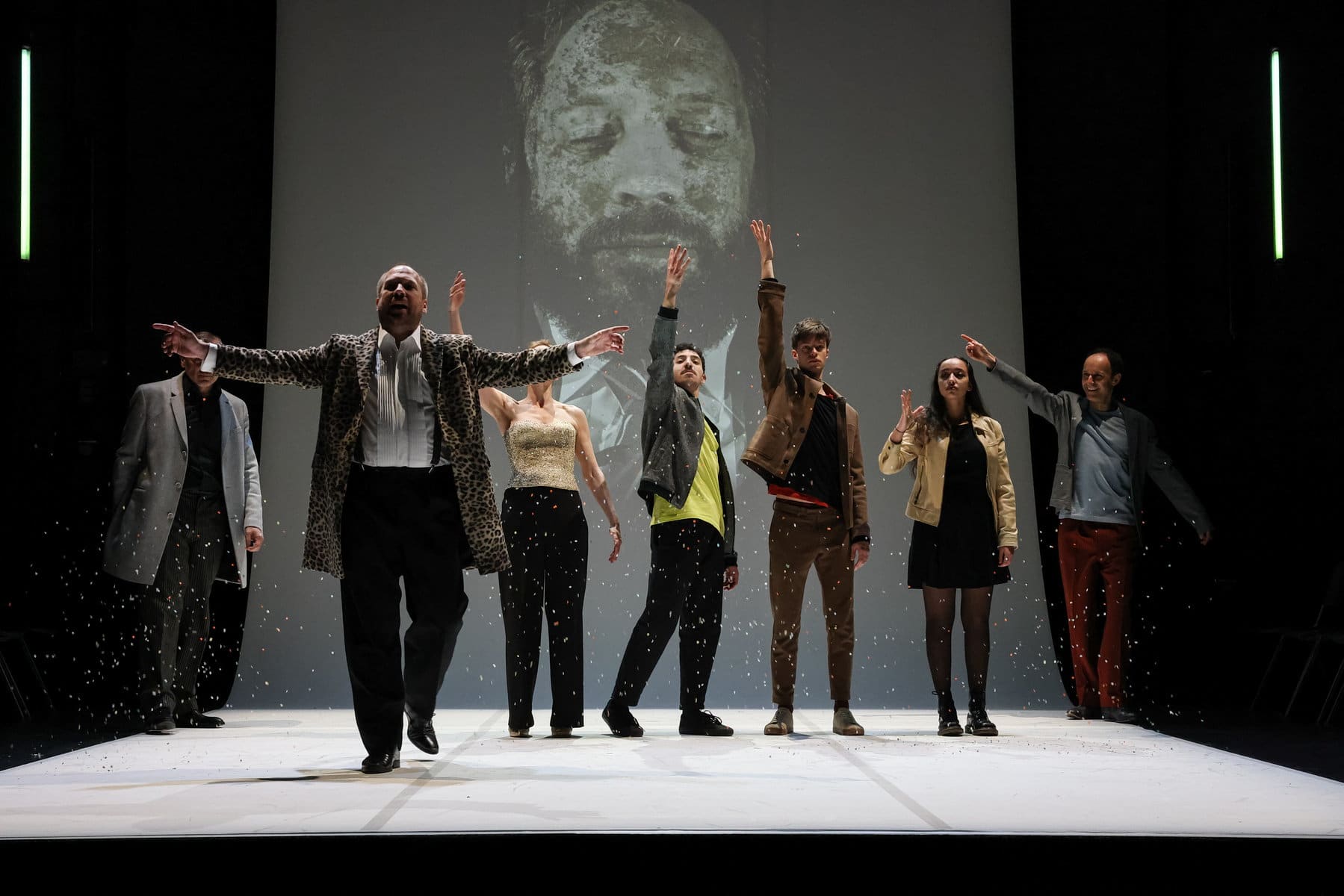
Events and festivals
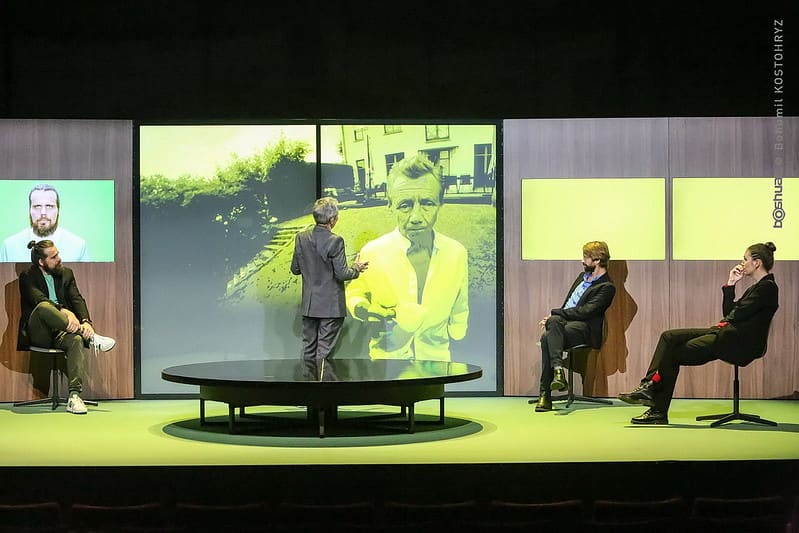
The theatrical season in Luxembourg normally concludes with two festivals. The first of these is the Luxembourg City Theatres’ TalentLAB, an experimental festival offering young artists a platform for presenting a draft version of a project in development. The other is the Fundamental Monodrama Festival, whose programme is made up entirely of monodramas, one-person shows, monologues and other short productions.
On top of those, the Mierscher Theaterdeeg was launched in 2021. It took place at the Mierscher Kulturhaus and combined shows, readings and round tables on original Luxembourg theatrical productions.
Also in 2021, the first Theaterpräis (Theatre Award) will be awarded; every two years, prizes will be awarded for a complete work, a new talent, on-stage work on a new Luxembourg production, and back-stage work on a new Luxembourg production.
The Luxembourg THEATER FEDERATIOUN was founded in 1995. It counts as members, not only the six main theatres mentioned above, but also the regional cultural centres, independent dance and theatre groups and the professional association for freelance theatre professionals. The THEATER FEDERATIOUN website also offers an overview of the programmes of all of Luxembourg’s theatrical venues. Another aspect of the mission of the THEATER FEDERATIOUN is to enable new Luxembourg productions to take part, during the year after they were first staged, in the Festival d’Avignon.
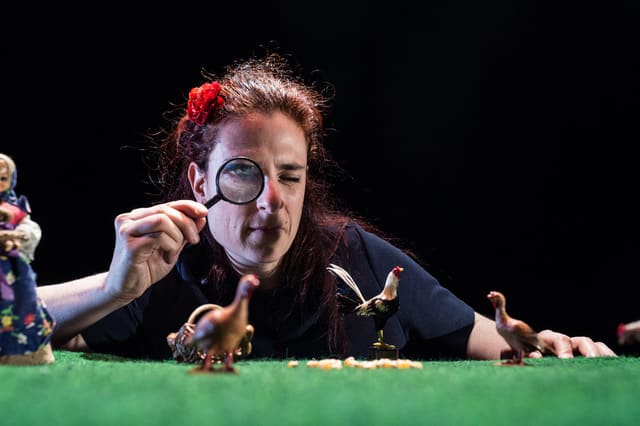
Institute for the Luxembourgish Language and its Literature
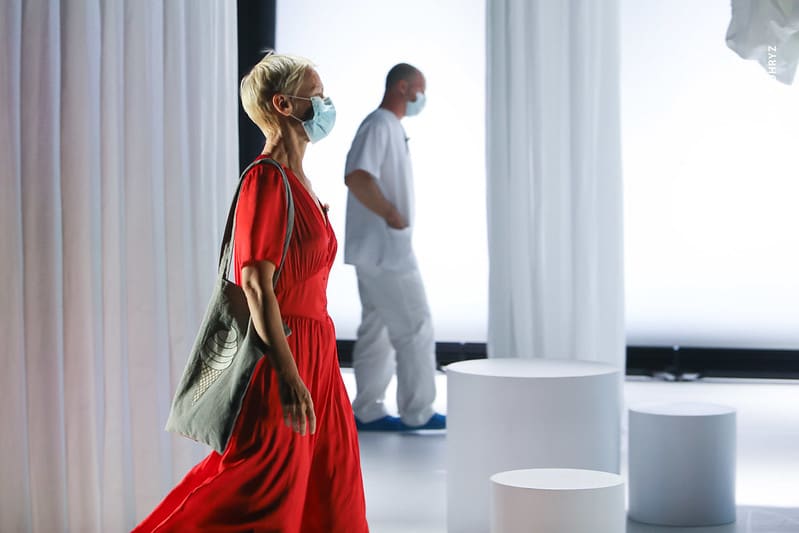
There is a noticeable absence of Luxembourger authors (writing in any language) and directors from school textbooks. However, it should be pointed out that the University of Luxembourg has a specialist master’s programme on the Luxembourgish language and its literature, offered by the Institute for the Luxembourgish Language and its Literature; part of that course is a module on the history of drama in Luxembourgish.
Ian De Toffoli, writer and university researcher
May 2021

